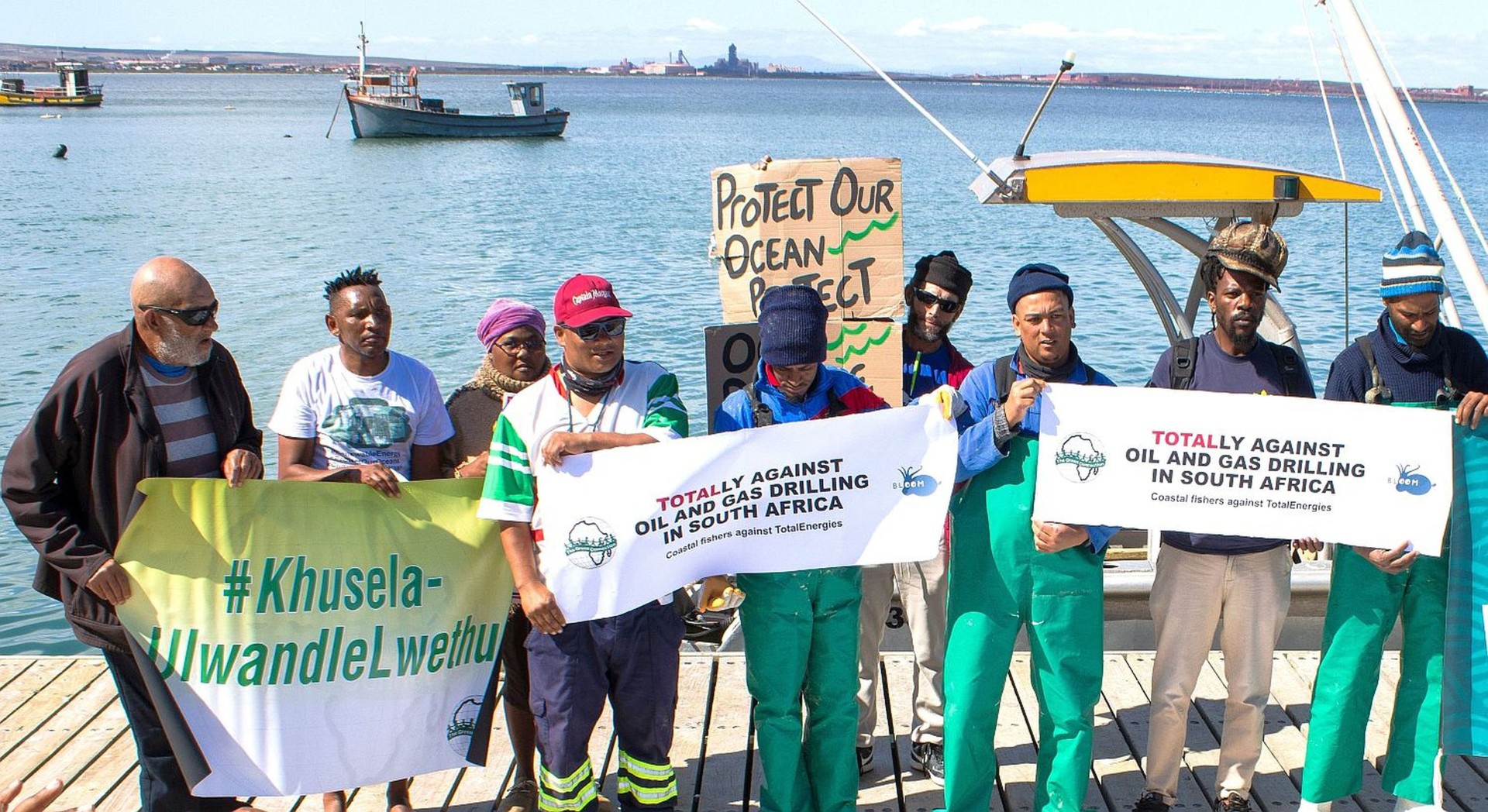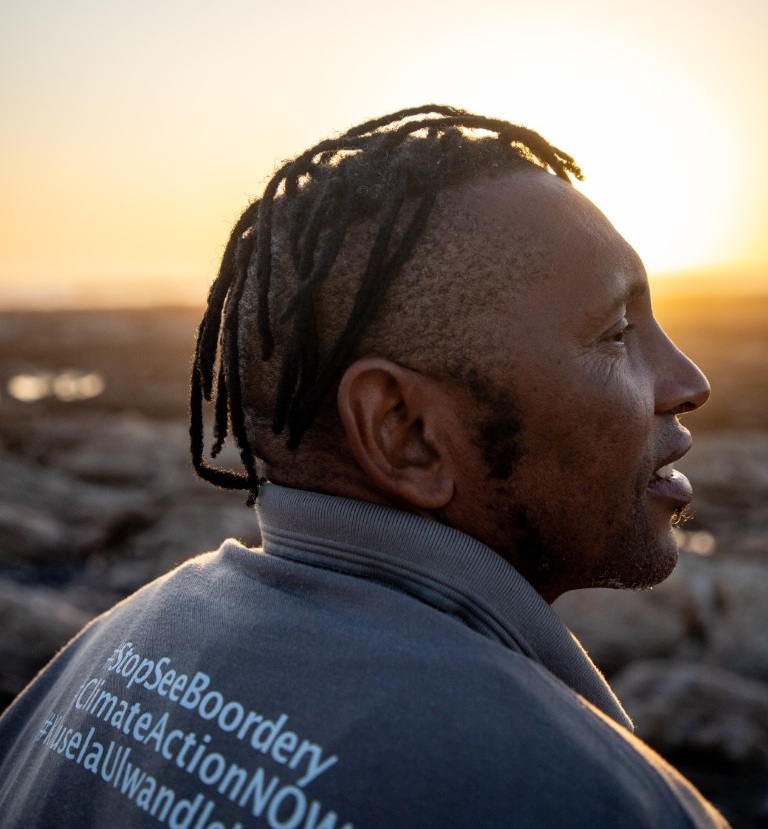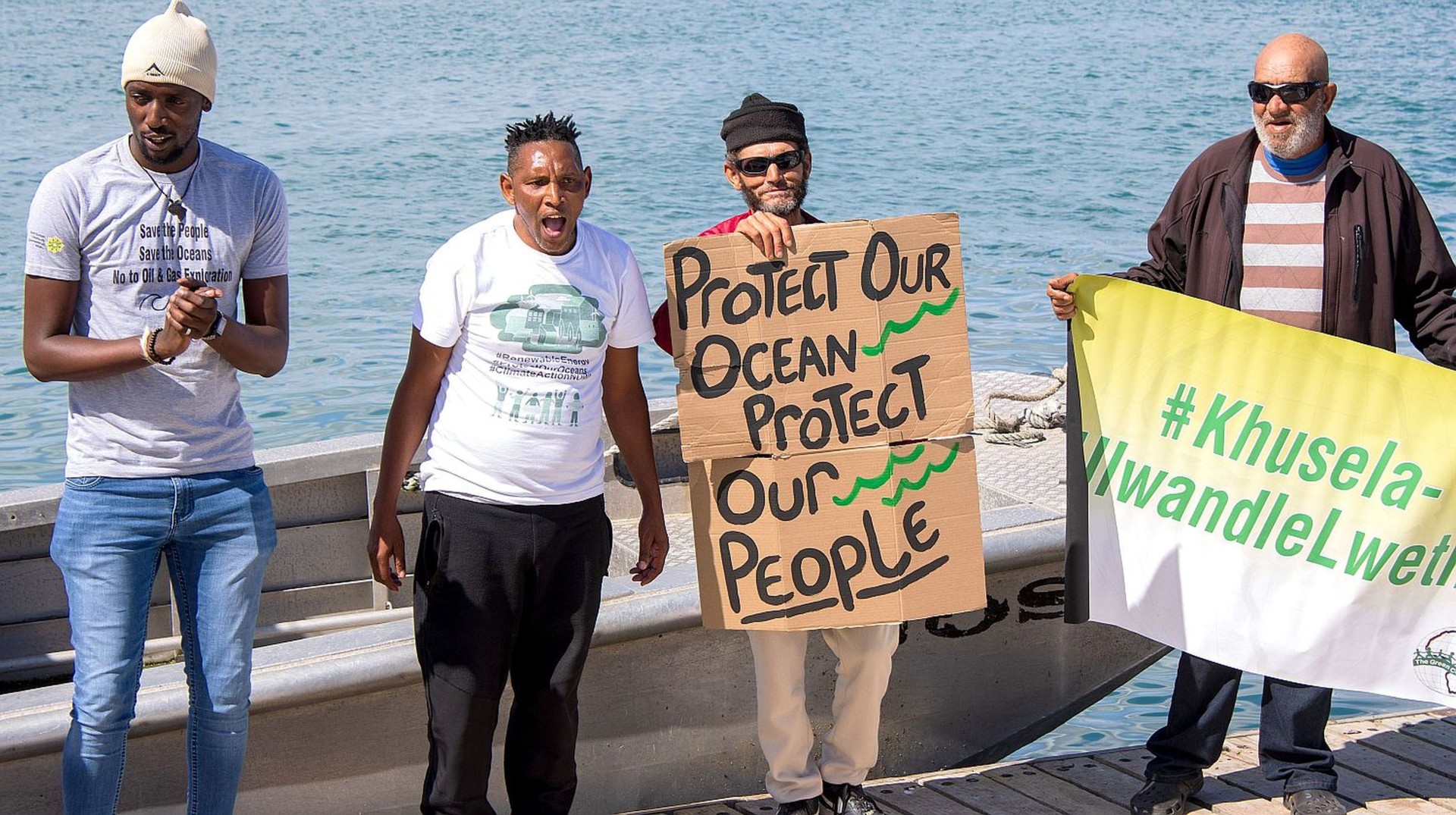OPINION - With the latest draft Integrated Resource Plan (IRP) seeming to open the floodgates to offshore oil and gas applications and projects, The Green Connection says that a new oil spill model – the first developed specifically for South African waters driven by conservation NGO, WILDTRUST – provides much needed proof of the real risks and the potential extent of damage that could be caused and the impact it could have on tourism and fishing industries.
With around 90% of South Africa’s ocean already leased for potential oil and gas projects, The Green Connection’s Community Outreach Coordinator, Neville van Rooy, says: “South Africans must recognise exactly what’s at stake. These are not distant risks – they are real, and they are on our doorstep.
"The supposed economic benefits are often exaggerated to gain community buy-in, while the environmental damage and the cost to coastal communities could be irreversible. Those living closest to the sea – who depend on it for food and income – will be the first and worst affected.”
Referring to the MV?Ultra?Galaxy disaster, which hit South Africa’s coast mid-2024 – spilling over 500?tons of oil across a 40?km stretch, near Doring Bay – van Rooy explains: “Local fishers from Papendorp and Ebenhaeser reported no catches for weeks. The water was discoloured and smelled strongly of oil – making food security and income impossible.”
In addition, Masifundise and Coastal Links also warns of the long-term trauma this spill has caused to communities whose lives depend on the sea.
According to the oil spill modelling, a 15-day blowout of light crude oil from an ultra-deep drill site off the east coast of South Africa (Durban, KwaZulu-Natal) has a nearly 80% chance of triggering beach clean-ups and a 50% probability of killing shoreline marine life.
And, with the powerful Agulhas Current, could potentially reach as far as the West Coast, within as little as 30 days.
Lauren van Nijkerk, WILDTRUST Campaigns Director, says: “Operation Phakisa which means ‘hurry up’ was South Africa’s idea of pushing for a Blue Economy, but assumes the ocean is just there for economic gain and doesn’t take into account the inherent value the ocean has in terms of heritage, culture, ecosystem services, tourism, and most importantly that it feeds thousands of families across our beautifully diverse country.”
Legal challenges are already exposing the cracks within the campaign to go all-out on oil and gas.
The Sustaining the Wild Coast case confirmed that proper consultation and respect for cultural rights are constitutional obligations.
 The Green Connection stands in solidarity with small-scale fishers along the West Coast, who are demanding a halt to harmful offshore drilling and asserting their right to protect the ocean, their livelihoods, and their heritage.
The Green Connection stands in solidarity with small-scale fishers along the West Coast, who are demanding a halt to harmful offshore drilling and asserting their right to protect the ocean, their livelihoods, and their heritage.
And in a separate case, The Green Connection and Natural Justice argue that exploration in the Deep-Water Orange Basin ignores climate goals, economic realities, and basic rights to a healthy environment.
“When we weigh the pros and cons, the numbers just don’t add up either. According to reports, a 20% increase in oil and gas activity would barely lift our GDP in the short term – just 0.15% – but could harm growth in the long run. Meanwhile, sustainable ocean sectors like small-scale fisheries and tourism already provide more jobs with a more stable income, and has much broader social value,” adds van Rooy.
Walter Steenkamp, a small-scale fisher, puts it plainly: “From the day drilling starts, the risk is there. Spills and pollution can happen immediately or years later. And before they even start, what about seismic blasting? Will it scare off the fish we depend on? Will it affect their breeding and feeding habits? We just cannot risk it. Too many lives are at stake.”
The Green Connection warns that South Africa is at risk of repeating the “resource curse” – where extractive industries seem to only enrich a few elite tycoons, while leaving local communities without any of the profits, only environmental damage and social upheaval.
There are numerous examples of this, the world over.
 Neville van Rooy, Community Outreach Coordinator at the Green Connection – looking out to the ocean he strives to protect.
Neville van Rooy, Community Outreach Coordinator at the Green Connection – looking out to the ocean he strives to protect.
The Green Connection’s Strategic Lead, Liziwe McDaid says: “For South Africa, offshore oil and gas represent an economic illusion. While some nations may have built their wealth on fossil fuels in the past, in the context of the climate crisis, this is no longer a viable path forward. Government and industry must stop clinging to the myth of fossil fuel prosperity, which often leaves communities worse off than before.
"To truly boost the economy, South Africa should embrace its potential as a leader in renewable energy and related technologies, while investing in a future grounded in sustainability – whether in fisheries, tourism, or even transport. This is how we protect the environment that sustains us and ensure meaningful economic growth.”
 The Green Connection’s Community Outreach Coordinator, Neville van Rooy joins communities on the West Coast – who depend on a healthy ocean for their livelihoods – in protest against offshore oil and gas exploration.
The Green Connection’s Community Outreach Coordinator, Neville van Rooy joins communities on the West Coast – who depend on a healthy ocean for their livelihoods – in protest against offshore oil and gas exploration.
For more info on this visit, click here or to sign the petition, visit here.
Follow: @wildoceanssa | @oceanimpactsa
Comment and opinion are that of the author and not necessarily shared by Group Editors, any of its publications or staff members.
‘We bring you the latest Garden Route, Hessequa, Karoo news’
















